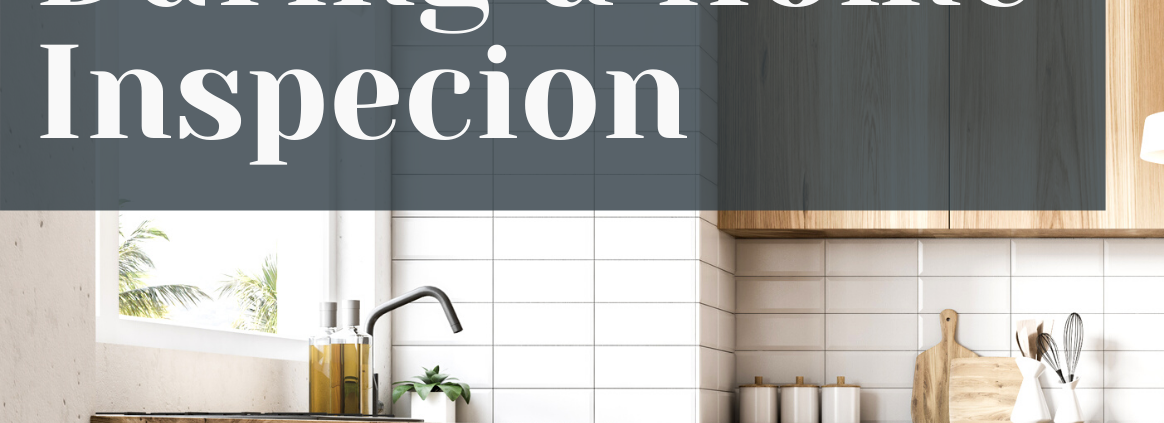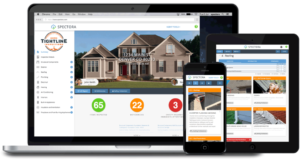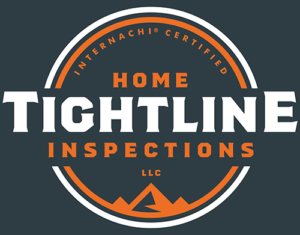
Home Inspection Expectations
The seller accepted your offer. Congratulations! Now, your next step should be scheduling a home inspection. But what should you expect during a home inspection?
Having a home inspection can help confirm your love for the home. It could also unearth issues that make it the home of your nightmares.
Here we’ll explain the basics of understanding a home inspection. You will learn about the Standards of Practice, the inspection process, and the report.
Standards of Practice (SOPs)
Every professional home inspector follows a standard of practice. These are specified through one of the Home Inspector associations or as outlined through their state regulations.
At Tightline Home Inspections LLC, we follow the InterNACHI (International Association of Certified Home Inspectors) SOPs. You can find InterNACHI’s SOPs here.
What do Standards of Practice Explain?
The Standards of Practice define what a home inspection is and how it should be performed. It explains what systems of the home are inspected and what should be included in the written inspection report. What the home inspector is or is not required to inspect for each system in your home is also included in the SOPs. Becoming familiar with your inspector’s SOPs will help you understand what to expect from your inspector. It is important to remember, that a home inspection is a “non-invasive, visual examination of the accessible areas of a residential property”. A home inspector cannot see through the walls to find a hidden issue at the time of the inspection. The home inspector will also not be able to predict the future condition of the home. They can only advise on the condition of the home at the time of the inspection.
What You Should Expect
You should expect your home inspector to follow the standards of practice. He should identify defects within the specific systems and components of the home as defined by the SOPs. They should inspect, if accessible; the roof, exterior of the home, the basement, foundation, crawlspace and the overall structure of the home, heating and cooling systems, plumbing, electrical, fireplaces, the attic, including the insulation, and ventilation, doors, windows and the Interior areas of the home.
The Inspection
Your inspector will be using a flashlight and some other tools that help identify potential problems. He will likely be relatively quiet. He will be taking pictures, notes, turning faucets on and off, flushing toilets, turning switches on and off, looking closely at floors, walls, and ceilings, etc… If accessible, he should make every effort to enter the attic and the basement and/or crawlspace. He will record information about your heating and cooling systems, your electrical system, your plumbing, the roof condition and materials and more.
How Long Should an Inspection Take
Although a home inspection is not and should not be a technically exhaustive inspection, it does take time. How long a home inspection takes depends on the size and age of the home. A newer, small home may only take a couple hours. An older, larger home could take up to 5 hours to inspect thoroughly.
It makes sense to most people that the larger a home is, the longer it will take to inspect. However, most people don’t realize that an older home also takes longer to inspect. In an older home, there are more issues the inspector may need to be more diligent in inspecting. For example, Knob and Tube wiring is an old style of wiring that is prone to cause fire. Even after a home’s electrical wiring was updated, it’s possible the old wiring was left live inside the walls. The home inspector should take some extra steps to try to determine if the remodel was done correctly.
Home Inspection vs Code Inspection
It is important to mention that a home inspector is not a code inspector or a code enforcer. A code inspection is mainly looking at whether or not the home, or the work being completed, is compliant. It is also more technically exhaustive. Many building codes were written to try to ensure the safety of the occupants of the home. A home inspector should be concerned with the safety of his client and their family, regardless of code. During the inspection, he should make an extra effort to report on any safety hazards found. A safety hazard is still a hazard whether or not it meets the building code for the area.
One example of this would be related to Ground-Fault Circuit Interrupter (GFCI) and Arc-Fault Circuit Interrupter (AFCI) receptacles or breakers installed in the home. If the home is older, it may not have GFCI/AFCI protection. This is because the home was built prior to the building code being adopted. As such, there is no code requirement that the home must update to provide GFCI/AFCI protection. A good home inspector will still recommend that GFCI/AFCI protection be installed due to the safety hazards of not having it available in the home.
The Client Walk-Through
Many home inspectors will schedule the last half-hour to hour of the inspection to meet with the client and their agent. This is so they can walk-through the main material issues found during the inspection. However, as the paying client, you are welcome to attend the entirety of the inspection. There are certain areas that would be unsafe for you, and others attending the inspection, to follow the inspector. For example, the inspector will never allow the client to follow him onto the roof. The inspector may climb onto the roof to perform an inspection of the roof components, then he will fill in the client with what he found and will likely have pictures to show the client as well.
Throughout the inspection, if you attend the whole thing, you’re welcome to ask questions as to what the inspector is looking for, what he sees, or just ask what that little knob-thingy on that pipe does. He is there to help educate you about your home just as he is there to find any material defects on the home.
It’s important to understand your home and how to maintain it after your purchase. After all, it is one of the most significant and expensive purchases you will make in your life. You should take some time to learn about how to use and maintain your new home.
The Report
A written report outlining the defects within the specific systems and components defined by the SOPs, that your inspector both observed and deemed material, will be provided after the inspection. He will also include additional comments and recommendations on other issues found in the home that may not be material defects.
Many home inspectors now use online-based reporting software. These newer software systems offer much more flexibility with report structure and format. This makes inspection reports easily viewable online or on a mobile device. The report will include pictures, videos, commentary, links to articles or other explanations that help make it a great resource to you as the client. Think of it as a home maintenance plan, or at the very least, a reference of the condition of your home when you bought it so you can keep an eye on it’s condition over time as you own the home.
Sample Reports
At Tightline Home Inspections LLC we use Spectora Software which is known for producing some of the most visual and informative inspection reports. The functionality of this software allows us to complete the majority of the report on-site during the inspection. This means you will receive your Tightline Home Inspections report the same day as the inspection. These reports include high-quality images in both HTML and PDF formats so you can quickly see what’s the most important. We send the report link directly to you through email or text message. This way you can view it at your discretion. Plus, we’re always available to answer any questions you have about your report.
Click below to view one of our sample inspection reports.
Home Inspection = Piece of Mind
Remember, deciding to purchase a home for you and your family is one of the most important decisions of your life. Make sure you protect it by scheduling your home inspection right away. This will help ensure that one of the most important decisions of your life doesn’t turn out to be a bad one as well. Tightline Home inspections is here to help make sure your home will treat you and your family well for years to come. And to make sure of it, we also offer InterNachi’s $25,000 Honor Guarantee and InterNACHI’s Buy Back Guarantee with every inspection we complete.
Schedule your home inspection with Tightline Home Inspections today. Where our Tight Lines help you reel in a Tight Home.
Good luck and happy home hunting!



